Intermittent Fasting: What Works & What Doesn’t!
Category: Fasting
Intermittent Fasting: The Myths, The Truth, and What You Need to Know
Hunger – Starvation. It’s the first thing people fear when they imagine what intermittent fasting for weight loss and health benefits would feel like. That gnawing, empty feeling in the pit of the stomach, the one that makes the body tense up, searching for relief.
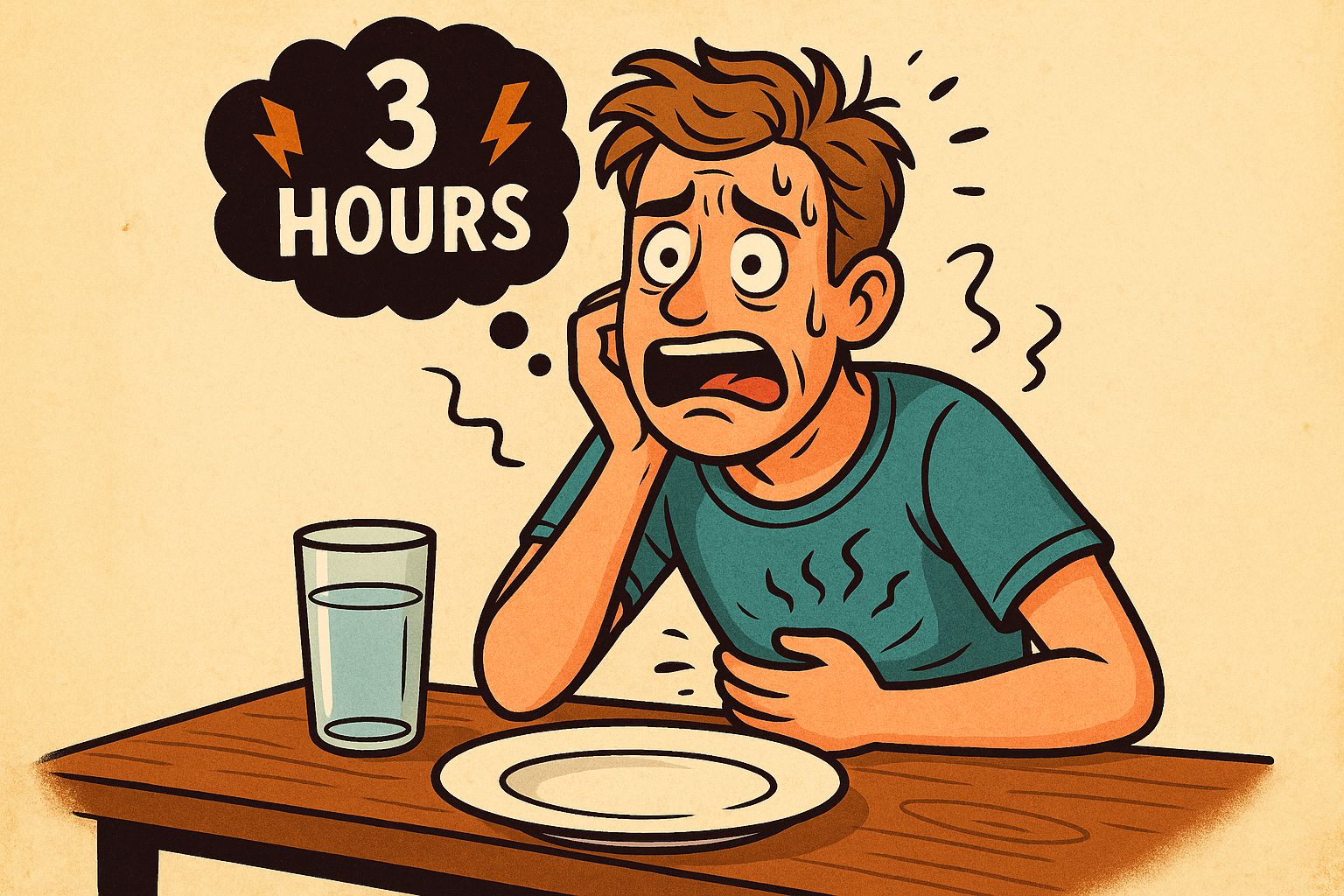
For decades we’ve been told that skipping meals is dangerous – that fasting slows down metabolism, causes muscle loss and isn’t effective for fat burning, yet, millions of people swear by intermittent fasting to improve metabolism, burn belly fat, and boost energy levels. So which is it? Science or myth?
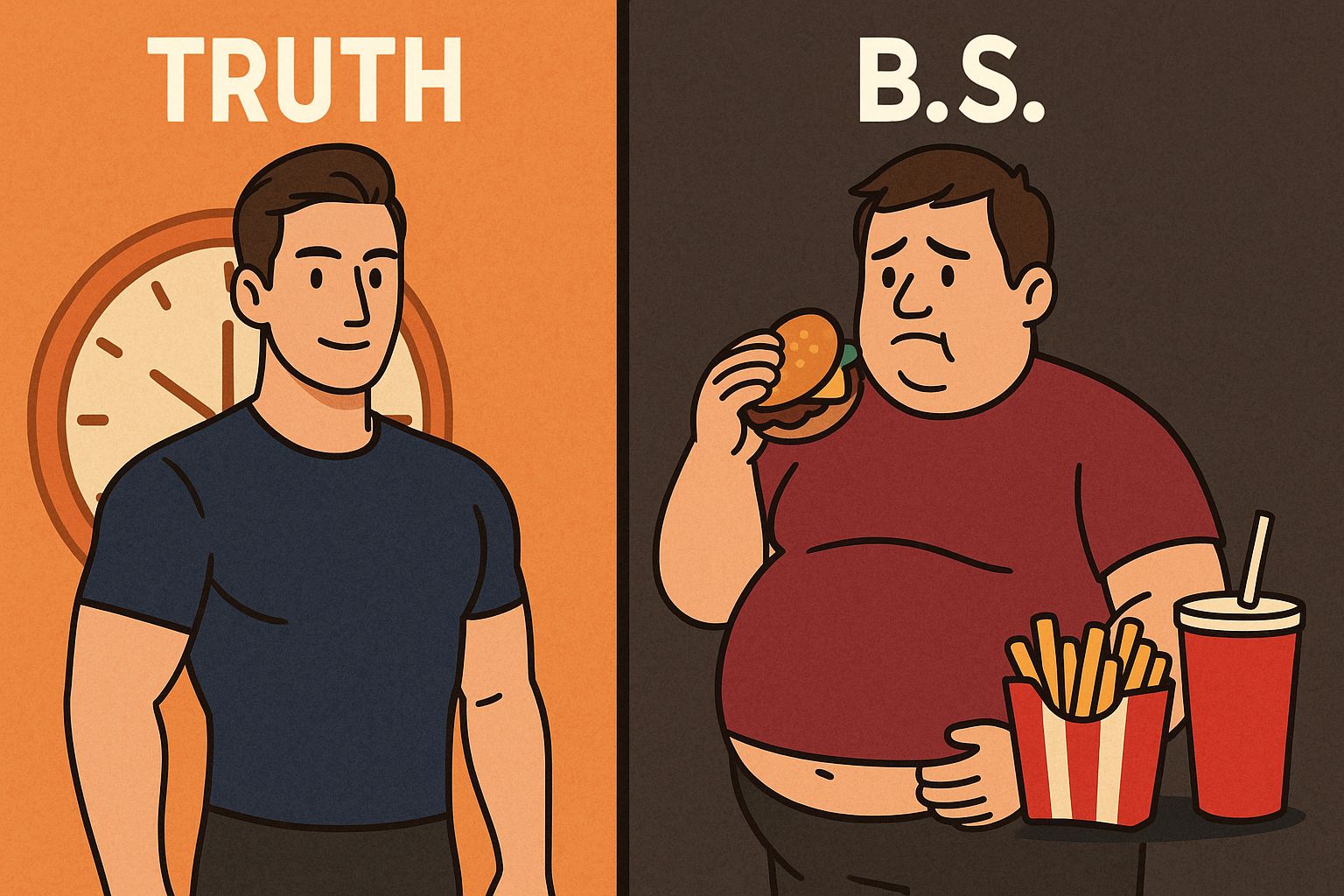
Today, we break down the biggest misconceptions people search for when it comes to intermittent fasting benefits and dangers.
🔥 The Metabolism Myth
People want to know: Does intermittent fasting slow down metabolism?
“Skipping meals slows your metabolism.” It’s a common belief that has made its way into many health conversations. The assumption is that when food intake decreases, the body panics, enters survival mode, and starts storing fat instead of burning it. That’s not what actually happens.
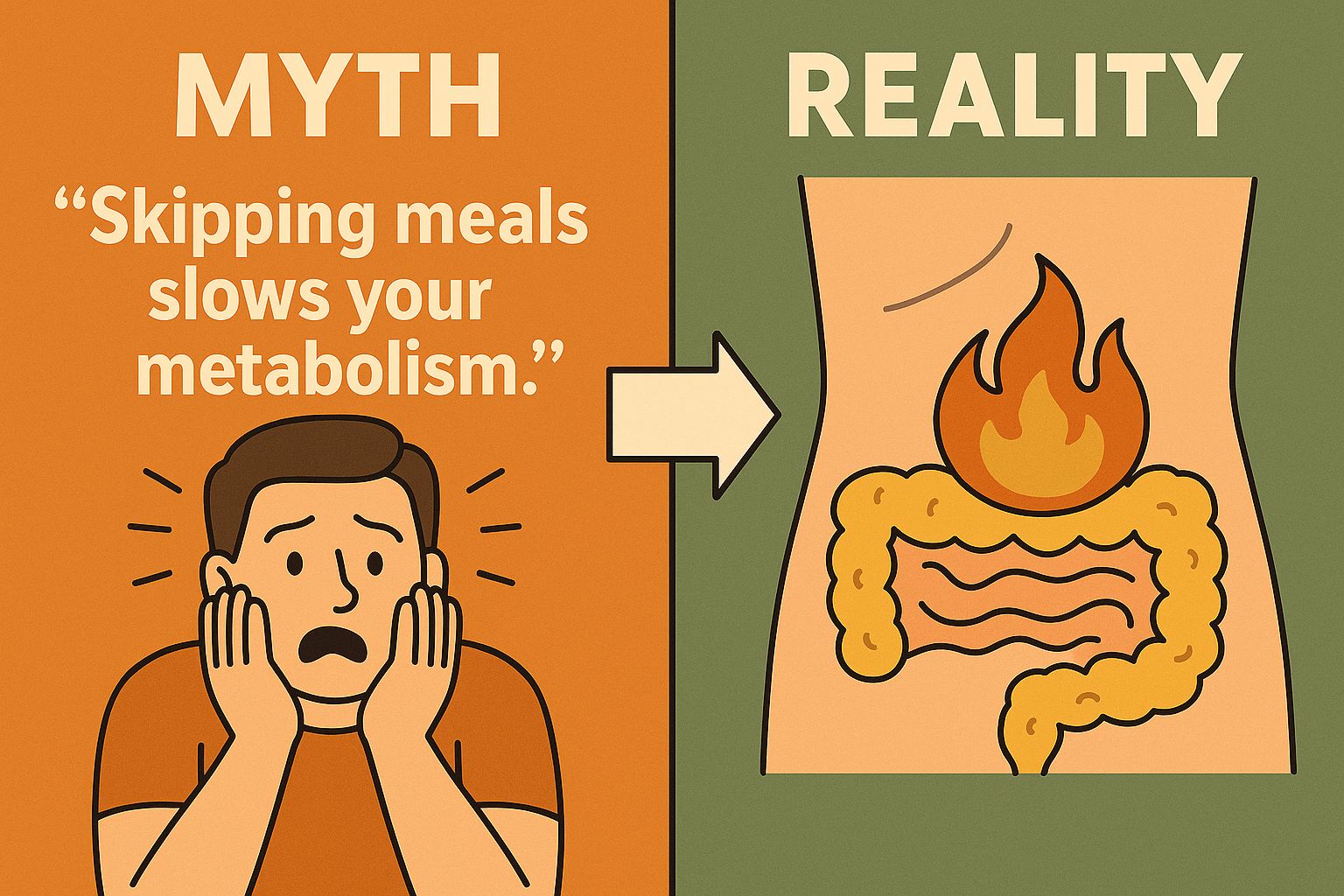
Short-term fasting be it 16, 24, or even 48 hours does not shut down metabolism. In fact, it boosts it. Studies show that during a fast, the body switches from burning glucose to burning stored fat for energy. Our growth hormone levels increase, triggering cellular repair and preserving lean muscle mass.
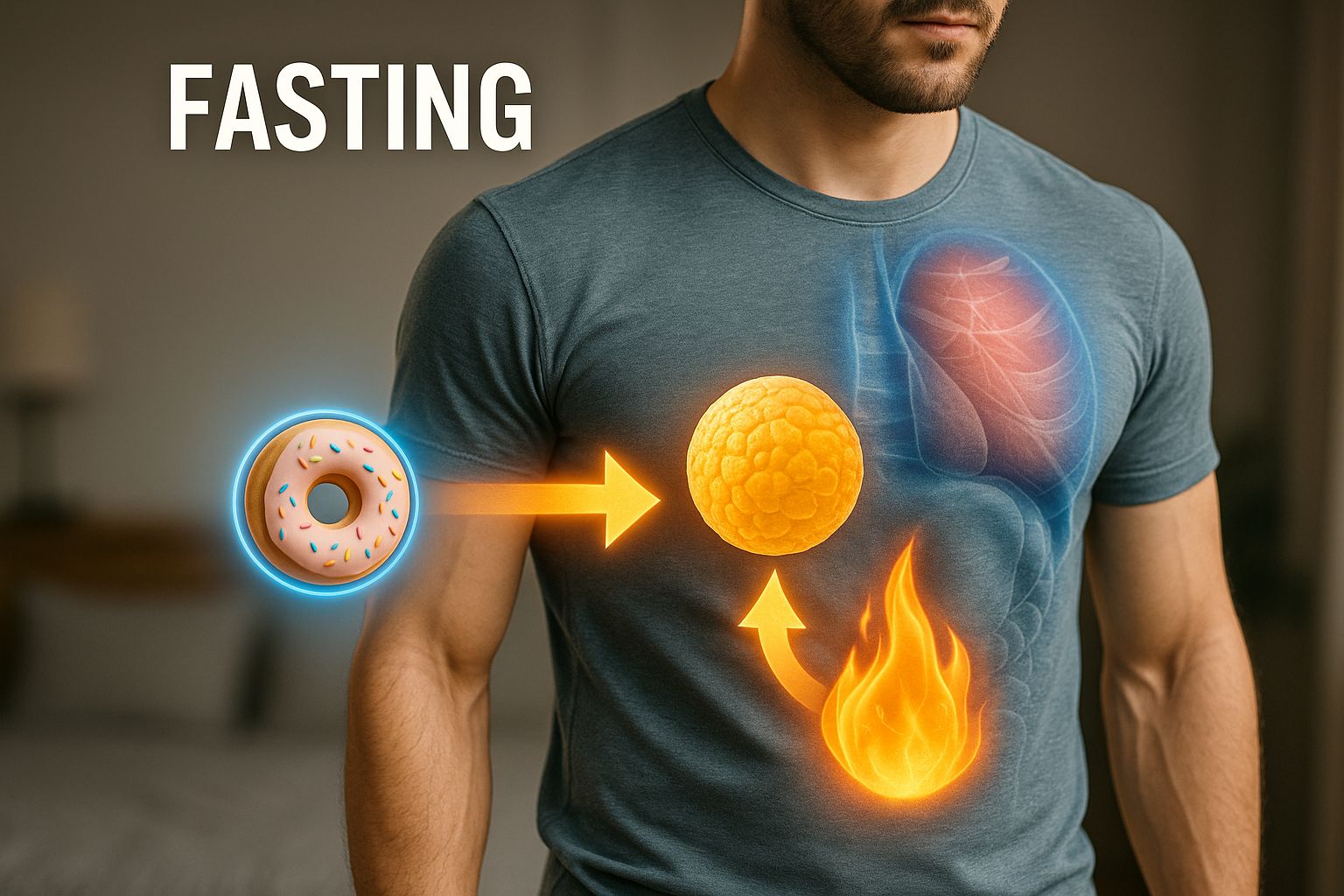
What does slow metabolism? Chronic calorie restriction, processed food intake, and lack of strength training. If your body is constantly deprived of calories and nutrients, it adapts—lowering energy output and making fat loss harder. A well-structured fasting routine can improve metabolic function, promote fat burning, and enhance longevity.
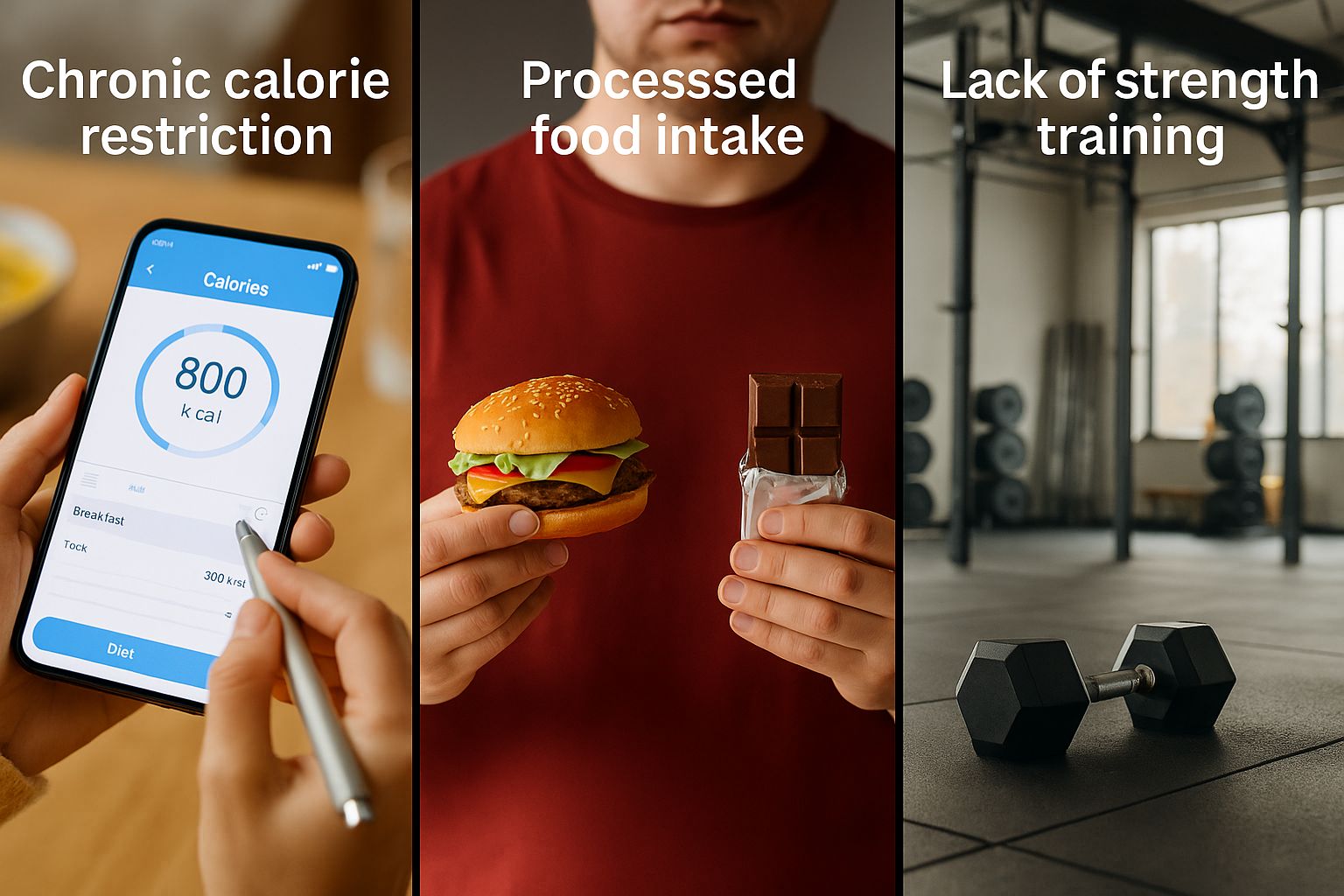
🍜 Breakfast: The Great Lie
Is skipping breakfast bad for you? Does intermittent fasting harm gut health?
For years, we were told breakfast was the most important meal of the day. Nutritionists repeated it, food companies reinforced it, but where did that come from? It wasn’t science, it was marketing from cereal companies and you can probably guess why. The reality? Your body doesn’t require breakfast to stay healthy.
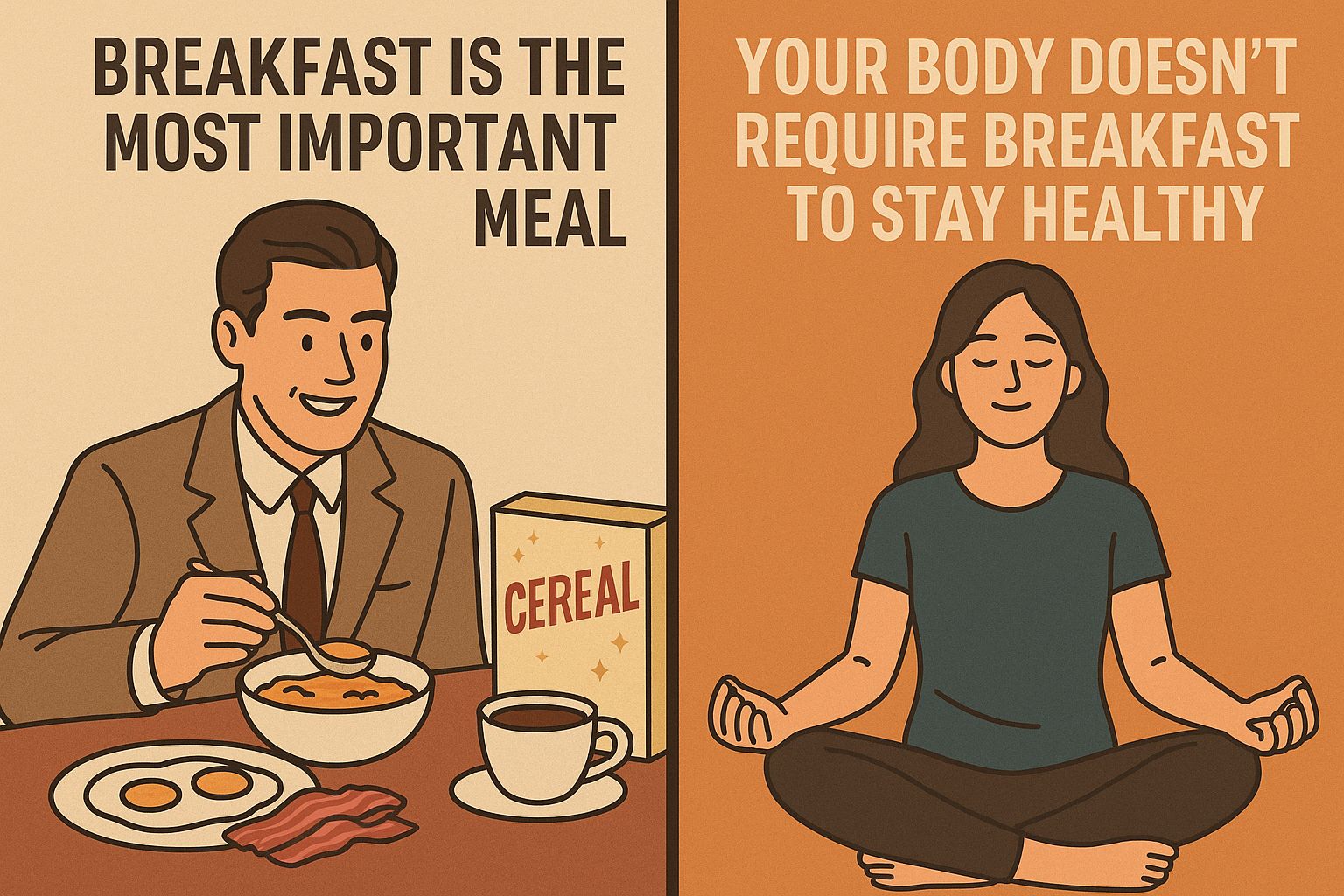
Having said that, some people perform better eating early while others do better with delaying their eating windows, which is how intermittent fasting works. Gut health and digestion can adjust so when it comes down to it, it’s not about when you eat, it’s about what you eat. Skipping breakfast doesn’t harm metabolism. Overeating later only happens if you break that fast with poor food choices. The real issue isn’t timing, it’s nutrition.
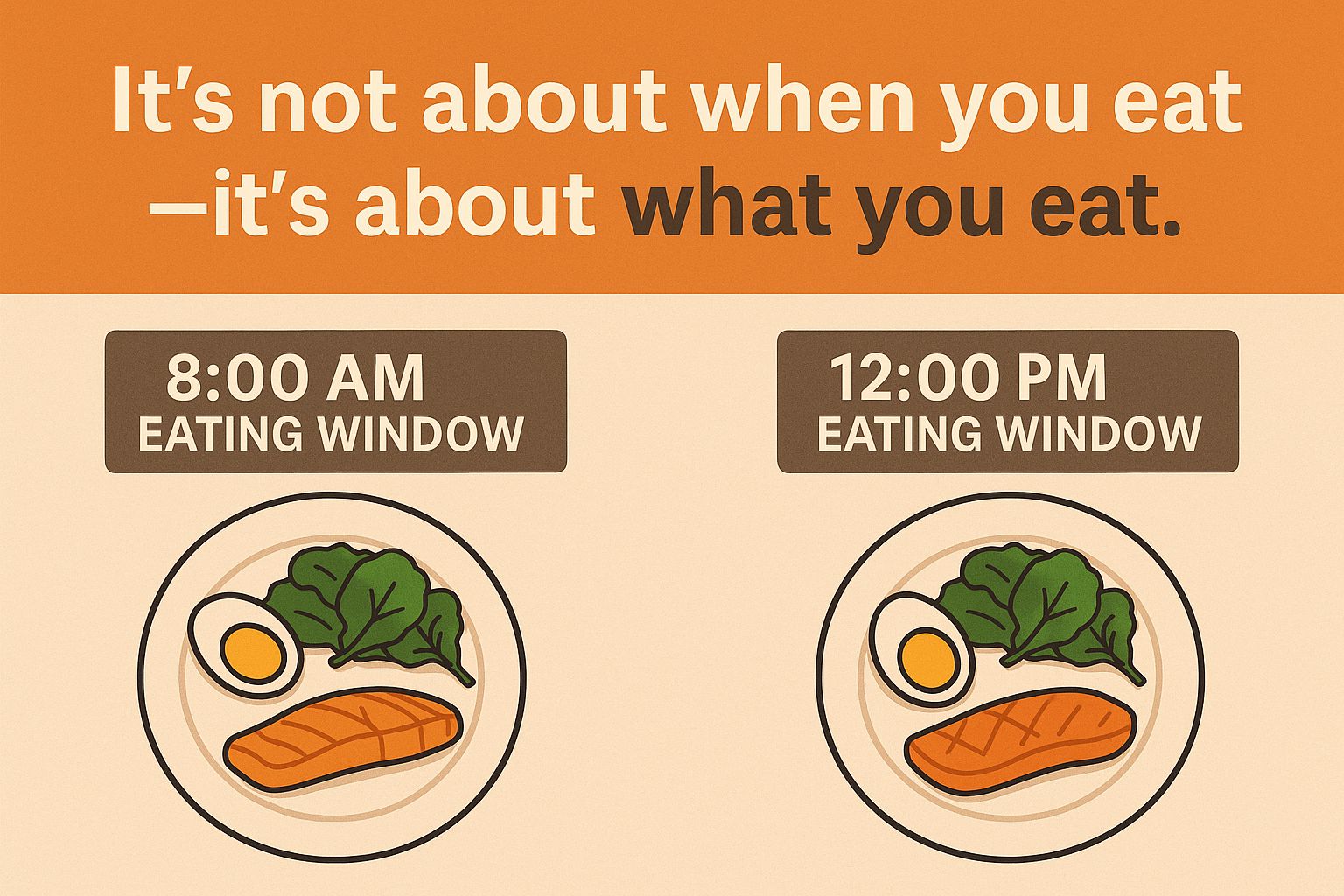
💪 The Muscle Loss Myth
Does intermittent fasting cause muscle loss? “If you fast, your body will break down muscle instead of fat.” This concern shows up everywhere, especially among those aiming to build lean muscle or avoid wasting strength while losing weight, but short-term fasting doesn’t destroy muscle. It actually preserves it and here’s why:
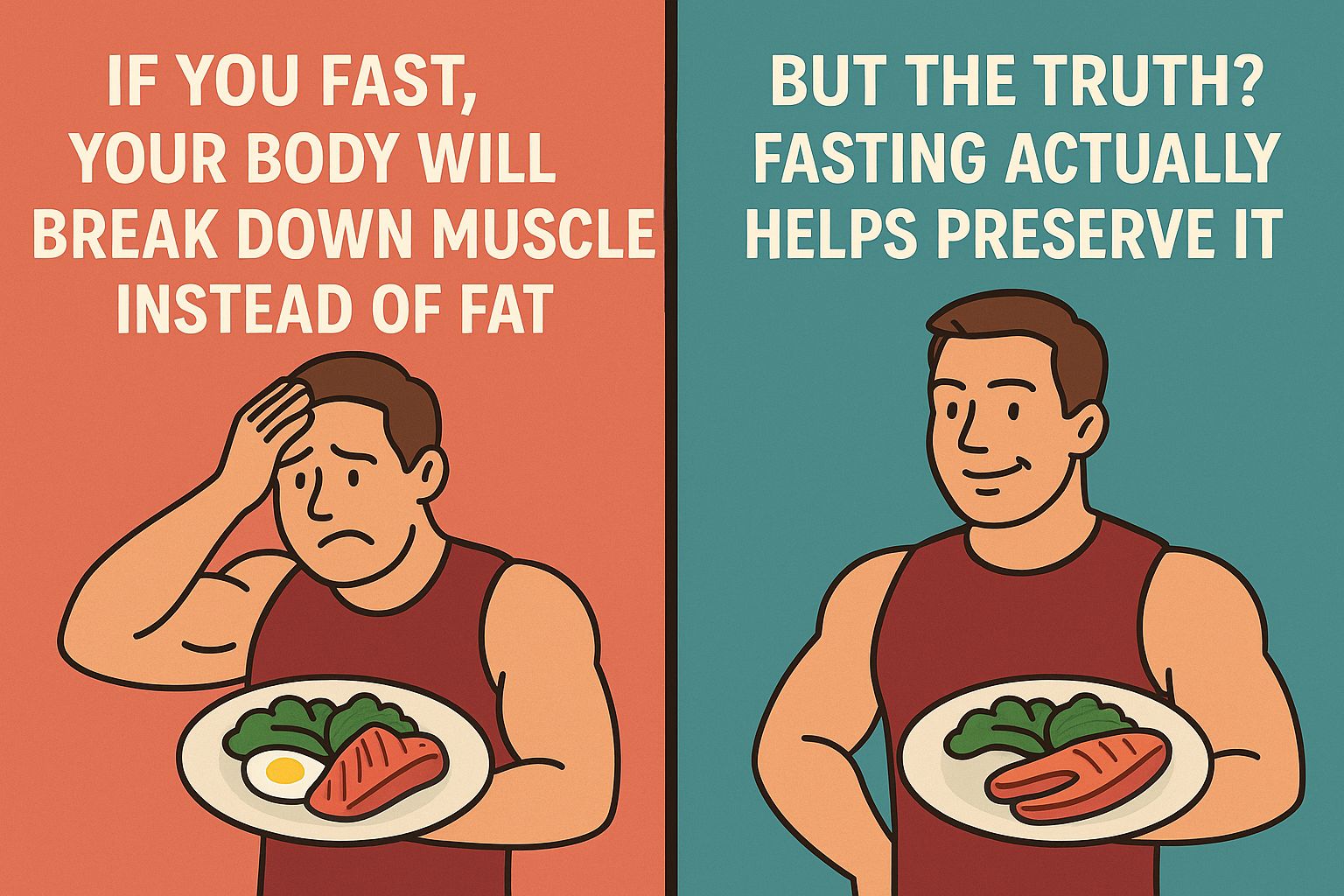
During fasting, the body prioritizes fat burning. Growth hormone increases which protects lean tissue and promoting cellular repair. Muscle loss only happens when fasting is poorly managed: no protein intake, no resistance training, or fasting excessively beyond 72 hours without support. A smart, structured fasting routine supports both fat loss and muscle retention.
![Image: Fit person lifting weights while fasting safely]
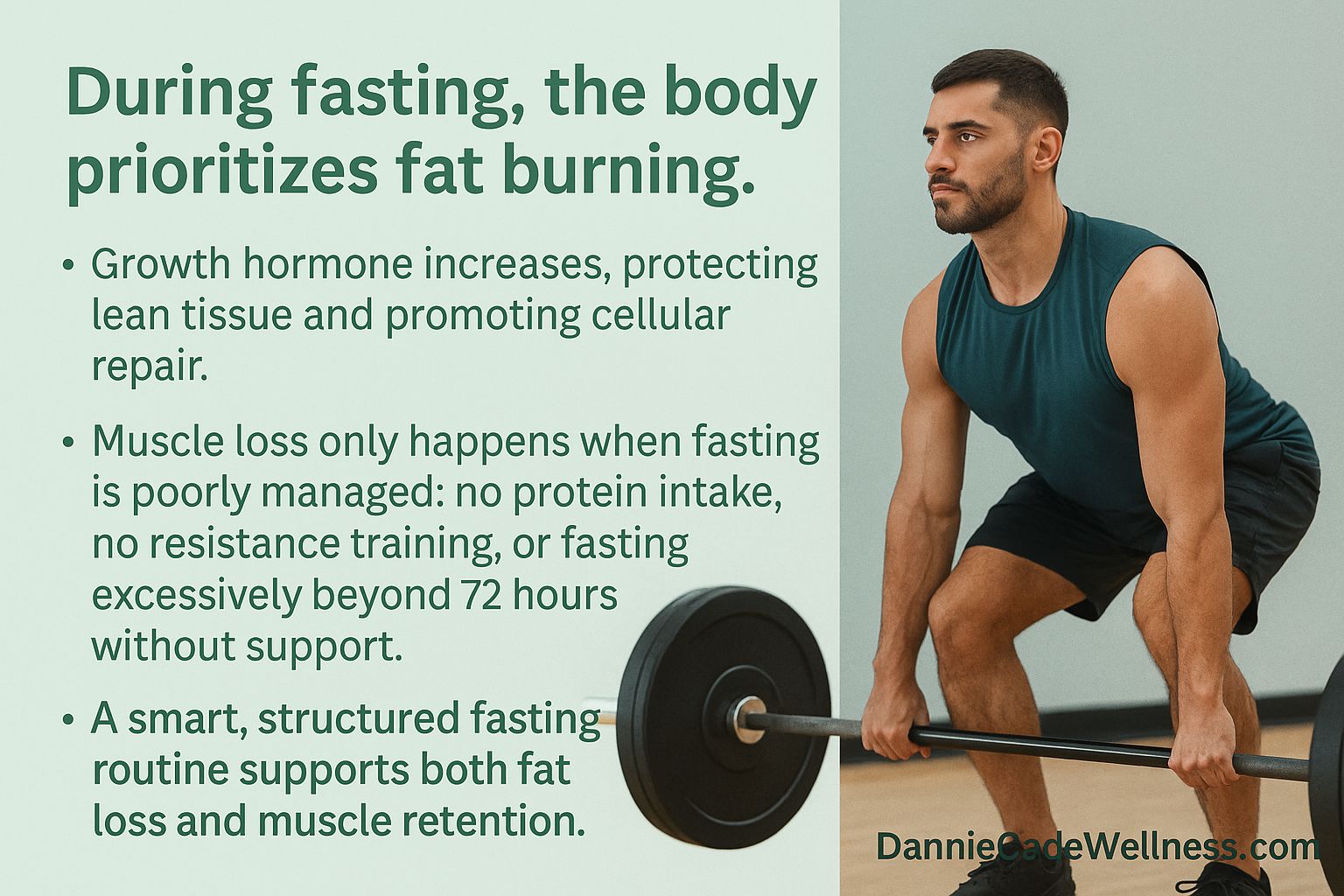
🍔 The Weight Loss Myth
Does intermittent fasting automatically cause weight loss? This is a HUGE misconception. Many assume that skipping meals guarantees fat loss, so they fast for a while and then binge on processed foods during their eating window, thinking that their fasting cancels it out. WRONG, it doesn’t work that way. Fasting helps regulate appetite and insulin, but it doesn’t override poor nutritional choices.
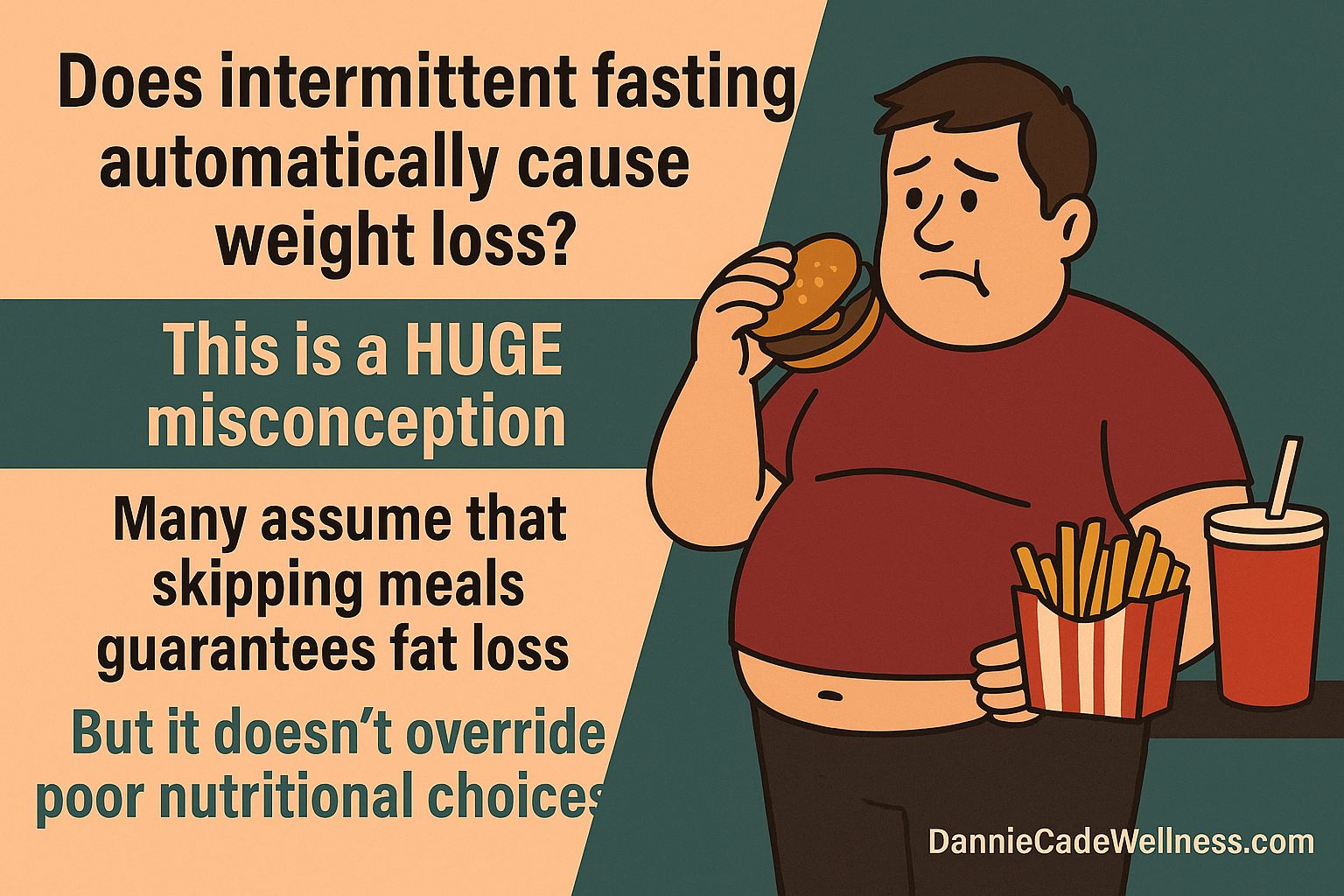
Weight loss only happens when fasting is paired with:
- Calorie balance
- Whole foods (fiber, protein, healthy fats)
- A resistance training plan
If you’re eating junk during your eating window, fasting won’t just fail, it will downright backfire. Your blood sugar crashes, fat storage ramps up, and cravings hit harder than before. Fasting doesn’t undo bad choices. Only real fuel does.
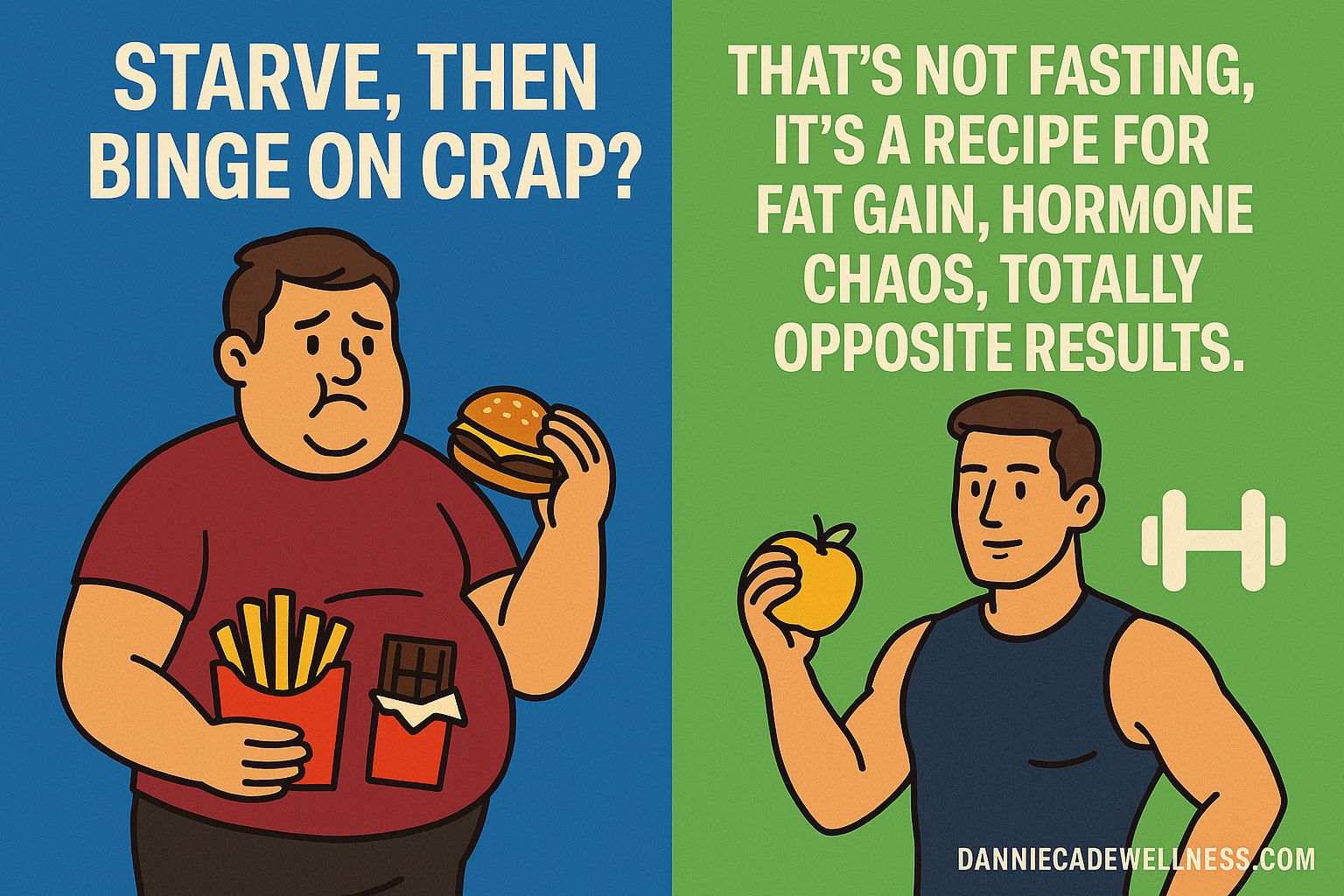
🚀 Final Takeaways
- Intermittent fasting doesn’t slow metabolism: it supports fat burning and energy efficiency.
- Skipping breakfast isn’t harmful: it depends on your rhythms and habits.
- Fasting doesn’t destroy muscle: bad nutrition and no training do.
- Fasting helps with weight loss: only if paired with real food and structure.
Fasting is effective for weight loss BUT, healthy food choices are absolutely essential to make it work. The benefits of intermittent fasting include (big breath in):
Improved metabolism, enhanced longevity, balanced insulin levels, better digestion, optimized fat burning, increased cellular repair, reduced inflammation, improved brain function, and enhanced heart health. You can see now why people are into this? That’s a LOT of improvements! To make intermittent fasting work for you, choose the right fasting method, prioritize whole foods, and maintain an active lifestyle. You can learn more about those things in my free online wellness center.
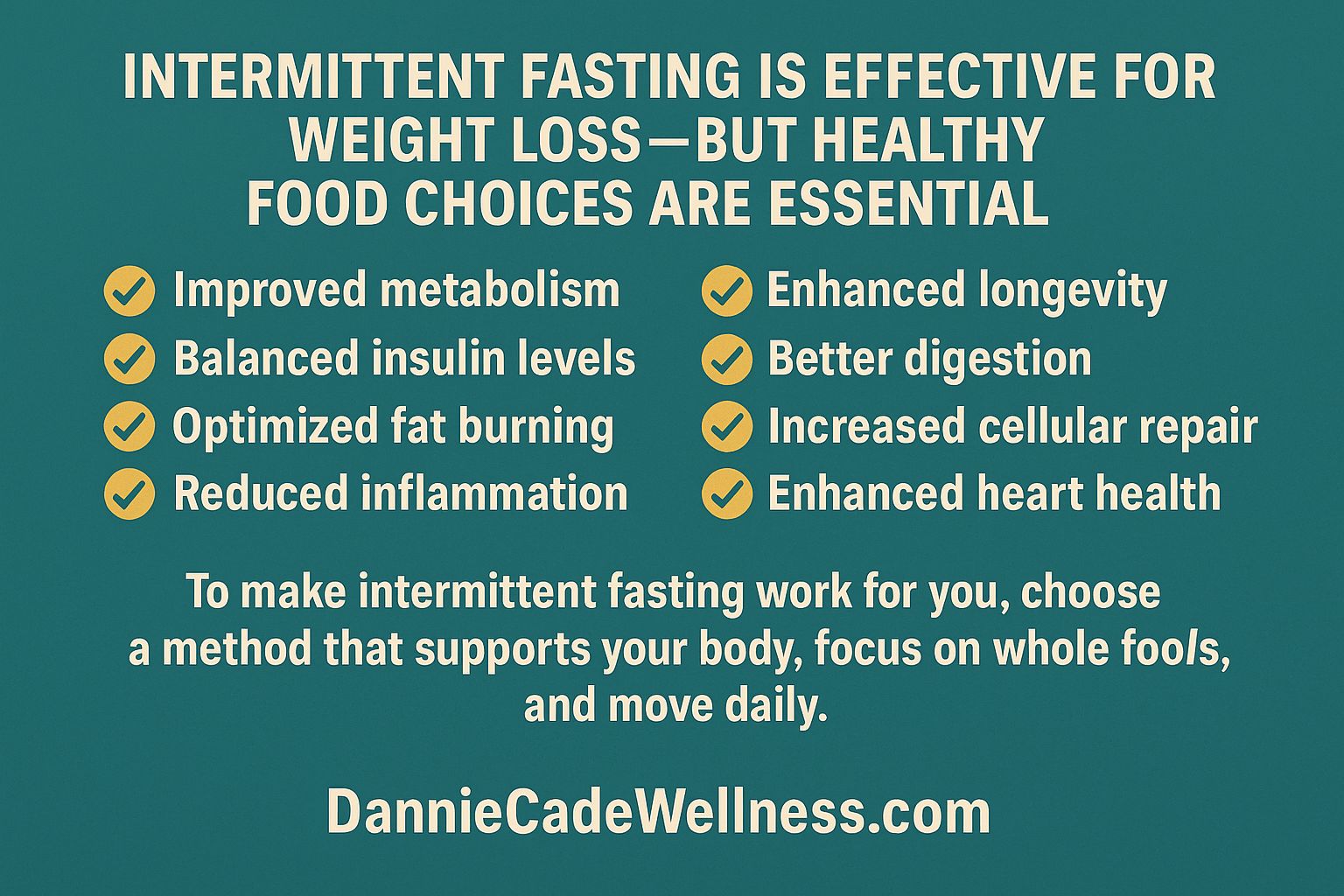
To make intermittent fasting work for you, choose a method that supports your body, focus on whole foods, and move daily. Drop FASTING in the comments if you want to know what works for me, I’m always happy to help!


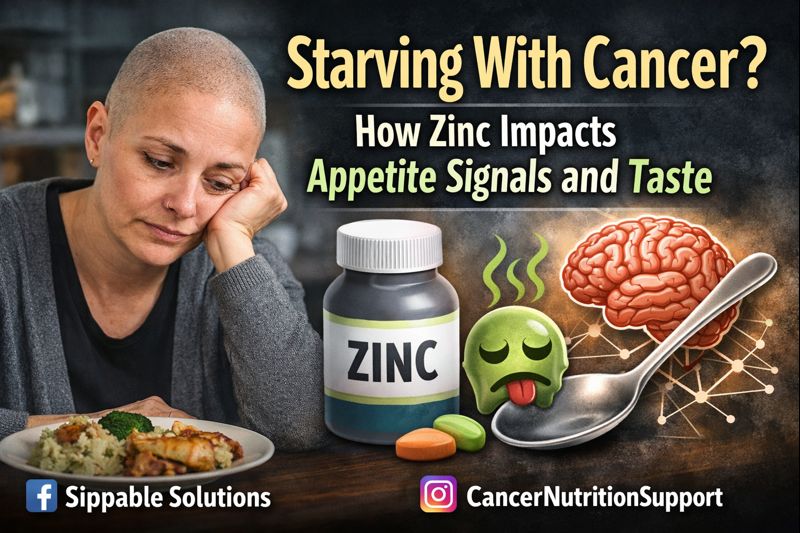
Facebook Comments